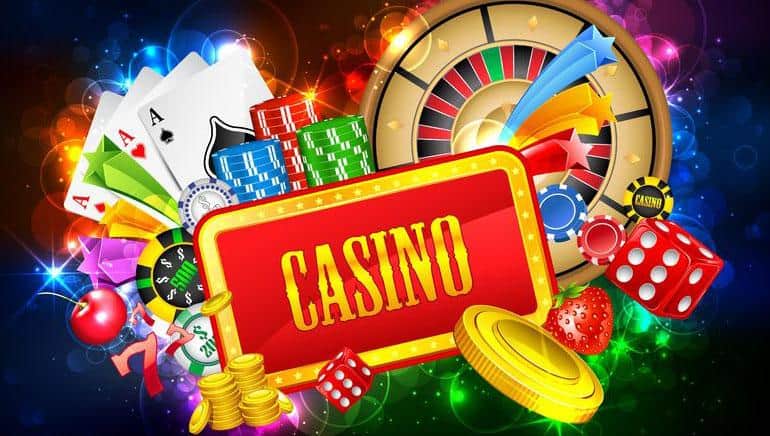
In the world of gambling, where chance and strategy meet, a unique tapestry of beliefs emerges—one that weaves together luck, fate, and the enigmatic nature of casino games. Casinos, bustling with excitement and anticipation, are not just places for placing bets; they are also arenas where superstitions thrive. Ranging from the novice player to the seasoned gambler, these mysterious practices often shape how individuals approach the games they play, holding the belief that their actions can affect the outcome in ways that go beyond mere probability.
As players gather around roulette wheels, blackjack tables, and slot machines, the atmosphere is thick with stories of lucky charms, rituals, and codified behavior that defy logic yet provide a sense of comfort. It could be the case that it’s wearing a specific outfit, following a particular sequence of bets, or even avoiding certain numbers, the attachment to various superstitions reflects a deep-rooted desire to control the uncontrollable. This article delves into the captivating world of casino game superstitions, examining the beliefs that simultaneously entertain and mystify those who dare to play.
Historical Origins of Superstitions
Gambling games have long been interwoven with an array of superstitions that trace to ancient cultures. The origins of these ideas can be linked to humanity’s innate wish to manage the uncertain outcomes related with chance and chance. In ancient civilizations, activities of chance were often connected to ritualistic practices. Gamblers would seek aid or ask for favor from deities, believing that their actions could change the odds in their benefit. This foundation laid the foundation for the myriad of superstitions that developed as gambling evolved over centuries.
During the medieval period, gambling became a widespread pastime across the continent, and with it, a diverse tapestry of superstitions appeared. Players adopted various rituals and charms, believing they could influence the outcome of games. The importance of numbers, in particular, began to manifest in superstitions pertaining to card games and dice. The number 7 was often considered favorable, while other numbers carried bad connotations. These ideas mirrored the cultural contexts of the time, evolving as they passed through generations and adapted to emerging gaming environments.
As gambling houses developed in the 1600s, particularly in Italy and the French nation, the atmosphere surrounding gambling became imbued in mystery. The growing openness of casino activities allowed for the expansion and diversification of superstitions among players. Concepts like fortunate charms, designated seating positions, and rituals gained prominence, creating a unique culture within gambling establishments. As these customs continued to thrive, they became fundamental to the essence of gambling activities, illustrating how history and society shape the notions that influence how participants interact with fortune.
Common Gambling Superstitions
Superstitions surrounding gambling games are abundant and diverse, reflecting the hopes and fears of gamblers as they engage in random activities. One of the most prevalent views is that certain numbers bring fortune or bad luck. For example, the digit 7 is often seen as a favorable number, frequently sought after by players looking for a positive outcome. Conversely, the number 13 is routinely considered unlucky, leading many players to steer clear of it during their gambling sessions.
Another common belief relates to practices that players believe can affect their chances. Whether blowing gently on the dice before a roll, using a specific hand to place a bet, or even putting on specific items of attire, many individuals feel that these rituals can sway luck in their benefit. These practices offer a sense of control in an otherwise unpredictable environment, strengthening the idea that luck can be created through personal beliefs and customs.
Finally, the environment and vibe of the gambling house itself contributes to superstition. Many players suggest that the presence of certain icons, such as four-leaf clovers or fortunate coins, can enhance their odds of success. Additionally, gamblers might hold to the notion that victory streaks can be halted by mundane occurrences, such as a person passing by or a accident at the gaming surface. The shared environment in a gambling house can amplify these superstitions, creating a communal culture of superstitions that goes beyond single experiences. King88
Impact of Superstitions on Players
Superstitions play a significant role in the mindset of gamblers, often affecting their actions and decision-making. Many gamblers think that fortune can be manipulated through various rituals, such as donning a talisman, selecting specific colors, or steering clear of particular digits. This reliance on superstitions can create a sense of control in an environment that is inherently unpredictable. Players frequently feel more confident and engaged when they think that their actions could sway the result of a game in their advantage.
The influence of these superstitions extends beyond individual players, affecting the overall atmosphere inside the casino. For instance, a player who believes in the luck of a certain slot machine might attract a gathering, as others are intrigued by their apparent success. This shared belief can amplify excitement and create a dynamic environment, leading to an captivating experience even for those who may not necessarily be superstitious. The buzz around certain games can lead to higher participation and extended playing sessions, supporting the casino’s lively social scene. https://king88a.org/
In some cases, superstitions can lead to negative effects for players. Relying too much on rituals can result in poor gambling decisions, as some may ignore basic strategies in favor of baseless beliefs. Additionally, the pressure to perform rituals may heighten anxiety and stress levels, diminishing from the pleasure of the experience. Ultimately, while superstitions can enhance the thrill of playing casino games, they can also lead to foolish choices that overshadow the enjoyment and amusement intended in the casino experience.